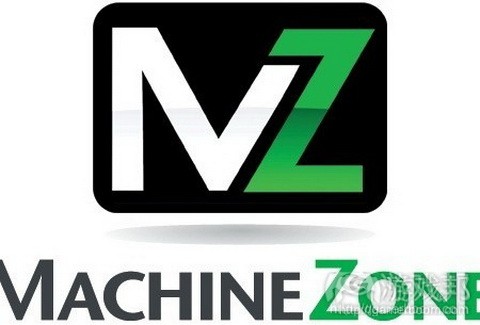Gabriel Leydon称免费模式将在未来成为主导
作者:Brandon Sheffield
有人觉得免费模式游戏剥削他们的用户,但在Machine Zone首席执行官Gabriel Leydon看来,掌机领域才具有掠夺性,才是不尊重玩家。
Machine Zone凭借《iMob》、《全球战争》之类的手机游戏取得突出成就,在Leydon看来,免费模式游戏不仅是行业的未来,而且未来将遍布各领域。他进一步表示,最终游戏将付费邀请你体验游戏。凭借Facebook平台的免费模式(游戏邦注:在此用户其实就是产品,表现在参数和广告数据上),他的想法不久将变成现实。
虽然本文作者强烈否定一次性付费模式会永远消失的看法,毕竟独立开发者凭借这一模式获得蓬勃发展,但Leydon提出一个颇具说服力的观点。如果中国的游戏就没有零售模式,而这里短期内将成为全球最大的游戏市场之一,这还不够说明一次性付费模式的未来走向吗?
就目前来看,免费模式无疑是手机平台的创收渠道,但有些人觉得这也许也是掌机游戏的未来。对此,你有什么看法?
我觉得这是电子游戏领域的唯一创收方式。免费模式的反对声音很多,尤其是传统游戏领域,因为他们并不了解这一模式。在他们看来,免费模式无非就是在欺骗玩家,或者有些玩家在其中投入过多资金。但在我看来,真正具有欺骗性的是掌机游戏,而非免费模式内容。掌机游戏将玩家视作敌人,他们不满玩家将不喜欢的游戏卖回给Gamestop。Gamestop无法协助电子游戏领域从二手内容中创收。
行业反对玩家,仿佛用户花70美元购买一款他们隔天发现自己并不喜欢的游戏是错误之举。当《使命召唤》之类的作品问世时,出现类似现象,隔天玩过的内容不过就只是《使命召唤》。所以,你得到的是众多并不喜欢游戏的《使命召唤》玩家,他们花费70美元,他们只能换回有限的零售价值,而Gamestop销售人员最后却会说:“这款游戏现在只值20美元。”
所以用户怎么了?没有人替他们感到难过。没有人会说:“他们刚在自己并不喜欢的东西上浪费了50美元。”掌机领域就此进行庆祝。他们对此感到满意。
不能说他们对此感到满意。另外,掌机领域也涉猎基于一次性付费模式的数字可下载内容。你也许会说,传统掌机领域正朝更有利于玩家的方向迈进。
这并非实况。有传言称,下代Xbox将无法体验二手游戏。我记得自己过去能够退还游戏,过去玩家总是能够退还电子游戏。大家忘记这一点。如果你不喜欢某些内容,你可以将它退还至Toys ‘R’ Us,收回资金。电子游戏领域应鼓励二手内容销售。他们应鼓励退款。但他们一直都着眼于这样的模式:年复一年地向玩家销售续集,在他们看来:“如果玩家不喜欢内容,那就是他们的问题。”
但我认为他们不会想要鼓励退款,因为你不可能看了《谍中谍》,然后说:“我不喜欢这部电影,我想收回我的时间。”
你提出这点很棒,因为电影行业也存在相同的问题。行业存在在线免费盗版版本,他们认为:“我们没法和免费模式较量,所以我们采取的举措是将内容放入IMAX和3D模式中,影片质量变更高,这也是为什么你需要支付20美元,而不是像过去那样支付5美元。”这并不可行。音乐领域也存在相同的问题。MP3问世后,是否还记得Napster?MP3的质量糟透了。但它还是摧毁了CD行业。质量不是关键。关键在于内容无需付费。这是同个媒介的低质量版本,但它无需付费。现在如果你听MP3就会发现,它的感觉和CD的效果没两样。你无法分辨其中差异。
所以免费模式是电子游戏领域的MP3。它目前的质量水平低于掌机领域,但它依然能够创收,依然呈迅猛发展势头,用户能够连续体验游戏数个月都无需掏钱。所以其经济模式远优于掌机游戏。掌机游戏唯一能够紧握的筹码是质量,但免费模式内容的质量也呈迅猛提升之势,典型范例就是《英雄联盟》和《CryEngine》之类的作品。所以预付费游戏不再有任何的施展空间。
我不同意此看法——例如,独立开发者在此取得突出成就,捆绑内容如今非常庞大。
的确如此,但这是由于通货紧缩,是吧?他们预先支付的资金数量越来越少。
有时是这样,有些玩家如此,有些则不是这样。
《Minecraft》的价格远低于掌机游戏。趋势依然是朝0元模式靠拢。
我想,依然会有玩家希望进行不涉及虚拟交易的体验。
我不这样认为,因为有人认为免费模式将永久停留于当前状况。
这显然会发生改变。
回头看3年前,当时的状况和现在发生多大变化?当前状况要比3年前好很多。免费模式领域要比3年前完善很多,而3年之后,行业将变得更杰出。很多人觉得当前状况就将永远定格,其实并非如此。
显然行业很久之前就开始发生变化,这一模式最初于1999年在韩国问世,情况显然今非昔比。
中国这样的地区就不会出现付费市场。
的确,付费模式压根就没出现过。
未来也不会出现,所以,这个最大的消费市场未来将不会出现付费体验市场——这点非常重要。如果你的公司瞄准的是全球市场(游戏邦注:互联网让开发者能够制作瞄准各种文化、各个国家的游戏作品),而全球最大的消费市场只锁定免费模式,而其他地区却不会出现这种情况?显然绝非如此。我认为这一模式将变得无处不在。
我很难想象,一次性付费模式游戏将完全消失。
我想你未来会选择无需付费的游戏,会选择能够从中获得资金回馈的游戏作品。所以认为行业将停留在0元模式的看法也不正确。你享有Tapjoy之类的平台,在此用户无需付费就能够下载应用,而其他有些游戏甚至会付费邀请玩家试验内容。所以未来我们这一数值将变成负数,游戏将基于0元以下的模式。(本文为游戏邦/gamerboom.com编译,拒绝任何不保留版权的转载,如需转载请联系:游戏邦)
Soon, all games will be free-to-play, says Machine Zone’s CEO
by Brandon Sheffield
Some argue that free-to-play games exploit their customers, but Machine Zone (formerly Addmired) CEO Gabriel Leydon says it’s the console industry that’s exploitive, and disrespectful of its clientele.
Machine Zone is finding success with its mobile games, such as iMob and Global War, and Leydon doesn’t just think free-to-play games are a possible future. He thinks they will be the entire industry. He argues further that games might eventually pay you to play them. With the Facebook free model, where you the consumer are essentially the product (via metrics and ad data), he might not be far off.
Though this author strongly resists the idea that paying for a product outright will go away forever, with indie game developers especially thriving on the pay once model, Leydon makes a compelling case. If China never had a retail model for games, and never will, and is predicted to be one of the largest game markets in the world in the short term, what does that say about the future of the single-pay model?
Free-to-play is clearly the way to make money on the mobile platforms right now, but some have argued it may be the future of consoles, as well. What do you think?
I think it’s the only way to make money in video games. There’s a lot of backlash against free-to-play, especially from the traditional game industry, because they don’t understand it. They feel like free-to-play is somehow tricking consumers or some people are spending too much money. But the way I look at it is the console industry is actually the abusive industry. Not free-to-play. Console treats its customers like they’re their enemy. They are angry at them for selling games they don’t like back to Gamestop. Gamestop won’t help the video game industry make money on used games.
It’s like this big warzone against the customer as if the customer is doing something wrong by buying a $70 game that they end up not liking the next day. And you can kind of see this phenomenon when a game like Call Of Duty comes out, and the next the day the used section is nothing but Call Of Duty. So, what you have is a very large percentage of the Call Of Duty buyers who don’t like the game and they spent $70 on it and they can only get so much retail value because they use that online pass and the used game, the Gamestop guy is saying, “Hey, this game is only worth $20 now.”
So, what happened to that consumer? Nobody is feeling bad for them. Nobody is saying, “Hey, they just wasted $50 on something they don’t like.” The console industry celebrates that. They’re happy about that.
Well, I wouldn’t say they’re happy about it. And besides, the console industry is also doing digital downloadable stuff which is sold at one price. You could also argue that the traditional console industry is moving in a player-friendly direction.
That’s not true. There’s rumors of the next Xbox not even being able to play a used game. I remember when I used to be able to return a game. It used to be possible to return a video game. People forget that. If you didn’t like something you could take it right back to Toys ‘R’ Us and get your money back. The video-game industry should be encouraging used sales. They should be encouraging refunds. But they’re so locked into this model of selling people sequels year after year after year that they feel like, “Well, if the player doesn’t like it, that’s their problem.”
I don’t know that they’d want to encourage returns, though, because you can’t go see the new Mission Impossible and be like, ” I didn’t like that movie! I’m gonna take my time back.”
No, that’s great that you bring that up because the movie industry is having the exact same problem. They have movies that are available for free online through piracy and they’re saying, “Well, we can’t compete with free so what we’re going to do is we’re going to put everything in IMAX and 3D, and it’s going to be higher quality and that’s going to be why you’re going to pay $20 instead of $5 like you used to.” It’s not working. The music industry had the same problem. With MP3s, remember Napster? MP3 quality sucked. It was terrible! But yet it was destroying the CD industry. The quality didn’t matter. It was just the fact that it was free. It was a lower-quality version of the same media but it was still free. And now if you listen to an MP3 it sounds just as good a CD. You can’t tell the difference.
So, free-to-play is the MP3 of the video game business. It is right now a lower quality than console but it’s making money and it’s growing like crazy and consumers are liking the fact that they can play a game for months at a time without ever spending a dime. So, the economic model is far superior to console, which just can’t compete. But the last thing console can hold onto is the quality, but the quality is also ratcheting up pretty fast on the free-to-play with games like League Of Legends and now CryEngine is being used for free-to-play. There’s no room for a paid upfront game anymore.
I kind of disagree with that — well, indies for instance have had great success with that, and bundles are huge right now.
Sure, sure. Because of deflation, right? They’re paying less up front.
Sometimes. Some people are and some people aren’t.
Well, Minecraft is much cheaper than a console game. The trend is still headed towards zero.
I think there are going to continue to be people who want to have an experience that isn’t related to in-game monetization.
I just don’t think so because there’s this idea that the way free-to-play is how it’s going to be forever.
Of course it’s going to change.
If you look at it just three years ago, how much different it is from three years ago to now? It’s much better than it was three years ago, that whole SMS scam that Zynga was caught up with. Free-to-play is already significantly better from where it was three years ago, and where it’s going to be three years from now is going to be much better than where it is today. I think there’s a lot of projection as if what’s happening is how it’s going to be forever. That’s not true.
Obviously it’s been changing for a long time because it really started in 1999 in Korea and it’s certainly not now where it was then.
A country like China will never have a paid market.
Sure, because they never did.
And they never will. So, to say that the largest consumer country, in the near future, in the world, will never have pay-to-play market – that’s pretty important. That’s really important. If you have companies chasing worldwide markets because the Internet allows you to make a game for every culture, every country, and to say one of the biggest ones is only free to play and that won’t happen everywhere else? I don’t think that’s true. I think it’s going to happen everywhere.
It’s hard for me to think that paying once for a game is going to disappear entirely.
I think you’ll play games that you’ll never pay for. I think you’re going to be playing games where the game pays you to play. So, this idea that it’s stopping at zero is also wrong. So, you have things like Tapjoy, where people are downloading apps – there’s a small amount of work – but they’re not paying anything. The other games are literally paying that player just to try out their game. So, I think we’re going negative. I think we’re going below zero in the future.(Source:gamasutra)
上一篇:分享评估应用程序的成功标准和参数










































